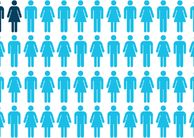Opinion:Third Grade Reading and Retention Policies to Improve Education Outcomes
By
2014, Vol. 6 No. 10 | pg. 3/3 | « RecommendationsHouse Bills 5111 and 5144 are well intentioned and focus attention on early literacy which should continue to be an educational priority. Michigan is looking at Florida as a model, and if it hopes to make the same progress Florida made, it should also model its early identification and intervention programs after Florida, complete with research-based methods and comprehensive professional development. HB 5144 aims to address the identification and intervention issue, but it is still underdeveloped and vague. HB 5144 requires MDE to research and develop early literacy programs, with little else figured out. Michigan should wait until MDE has researched and developed a reading program, and then write a bill outlining Michigan's policies. Only after Michigan has a solid plan of what our early literacy program will look like and how it will be implemented should HB 5111 be passed and enacted. Rep. Price said, “My bill sets the line in the sand, and Rep. Stallworth’s bill lays out how we make sure children don’t reach that line.”59 This idea of setting a hard line in the sand is reminiscent of Bush’s No Child Left Behind legislation, which required yearly standards-based assessments to ensure all students were proficient in reading and math by the year 2014. Unfortunately, because this admirable, yet lofty, goal was not supported by adequate programs and measures to ensure students reached proficiency, the legislation had counter-productive effects. Michigan should learn from NCLB that strict “get-tough” policies that are not supported by effective programs and adequate funding are doomed to fail. Furthermore, this focus on third grade retention ignores a large body of literature that shows retention is generally not effective. As it is written now, HB 5144 is little more than a timeline of mandates on MDE, with little detail about the actual intervention services. By April 1, 2014 MDE must submit a report that identifies successful literacy programs. By June 1, 2014 they must recommend or develop at least one reading program to be implemented by the 2014-2015 school year beginning in September 2014. It is also MDE’s responsibility to find funding for this program. The only real provisions it sets is that early screening must be done in the first 30 days of each school year for grades K-2, an identified struggling student’s parent/guardian must be notified in writing with tools to help that student’s reading, some kind of intervention program must be used, and that schools must submit annual early literacy data to MDE. As research has shown, in order for intervention to be beneficial to students, it must be research-based and sustained (meaning reading curriculum and intervention is cumulative and connected between grade level). Right now there is no provision in HB 5144 guiding what kind of intervention the legislature wants to see in schools. The timeline on HB 5144 is also unrealistic. After MDE submits its report to the Committee, it has only one month to develop and recommend Michigan’s version of a reading intervention program and how it will be implemented in a pilot program. Then, there is only about three months between the time the MDE will have a plan ready and when teachers will begin a new school year being expected to implement this into their classrooms. Today’s kindergarteners will be affected by HB 5144 (identification and intervention) in 2014-2015 when they are first graders, and will be affected by HB 5111 (retention) in 2016-2017 when they are third graders. This pilot group of students will be expected to be proficient in reading by third grade, even though intervention services will only be available to them in grades 1-3 rather than beginning in kindergarten. There is also not a guarantee that this group of students will receive the best quality of intervention services in their first year (or even second year), because their teachers will only have about three months to learn the tools and methods of the reading intervention program before the new school year. Three months is an unrealistic time frame to learn and master new reading intervention techniques, especially with the bill’s lack of attention to professional development.Professional development has also been left out of HB 5144 and all discussions on the legislation. Nowhere in HB 5144 is there a provision that requires schools to train their teachers in the new tools and methods of reading instruction and intervention. Hopefully MDE’s report and recommendations will incorporate professional development; however, it is concerning that professional development has not been included in current discussions on the legislation. In two of the models of successful reading intervention programs mentioned above, professional development was crucial to the programs’ implementation. In the longitudinal study, it took about a year for teachers to learn the technologies and methods of the program to “make a meaningful difference in their students’ reading achievement.”60 In the study on the layered reading approach to intervention it took about three years of practice with professional development for teachers to master reading data spreadsheets and identifying students who were making slow growth in reading.61 To expect teachers to master and implement a new reading intervention program in three months, especially without any mention of how they will be trained, is unrealistic, unfair, and unsupportive for our teachers. Teachers will probably still be learning the intervention program through the first year or two of the pilot program, which will mean that the program’s first class will not receive full benefits from that intervention program. Yet, they will still be held accountable to HB 5111’s retention policy when they reach third grade. HB 5111 should be implemented later than it is currently scheduled, so that the programs mandated in HB 5144 can take full effect before students are held accountable to obtain third grade reading proficiency. While there are good cause exemptions for students with disabilities in HB 5111, this applies to students with Individualized Learning Programs (IEPs), not 504 plans. During the most recent hearing on these bills, a woman with a dyslexic son testified against HB 5111 because it most likely would have required her son to repeat third grade.62 She cited dyslexia as a leading reason students struggle with reading, and said that most students with dyslexia are not diagnosed until third or fourth grade. She brought up an important point during her testimony: children with IEPs are covered under the good cause exemptions, but there was no such provision for students with 504s. An IEP is given to a child with a disability and ensures that student receives specialized instruction and services, while a 504 plan is given to a student with a disability to ensure they receive accommodations to help them reach academic success.63 Her son had a 504 plan, but not an IEP, because only the most severe cases of dyslexia require an IEP. This woman’s son was able to receive intervention services early, graduate from high school, and succeed in college. However, with HB 5111 as it is now with no exemption for students with 504 plans, he would most likely have been held back. HB 5111 should be amended to include students with 504 plans, or at least have a provision for parents to opt out of the retention policy. That way, parents of students with learning disabilities that are not severe enough to require an IEP can make the decision on whether or not their child would benefit from repeating third grade. Early literacy is hugely important, and that is why Michigan should take the time to implement an early identification and intervention program the right way, with effective supports that will actually help students reach third grade proficiency instead of punishing struggling readers. Dr. Shane Jimerson, a professor and Nationally Certified School Psychologist, wrote that “children in kindergarten, first, second and third grade do not fail; their lack of academic success reflects the failure of adults to provide appropriate support and scaffolding to facilitate their early developmental and academic trajectories.”64 If Michigan legislators do not take the time to more fully develop HB 5144, they are failing our students. HB 5144 should be the main focus right now, but it remains premature and lacking in detail. There is a difference between acting with urgency and rushing through something. If Michigan does not take the time to create a thorough intervention program and teach their teachers in detail about how to implement it, the entire plan could be counter-productive and useless. To more effectively serve our students, the legislature needs to focus more on developing HB 5144 than pushing through HB 5111. ReferencesConnor, Carol, Frederick J. Morrison, Barry Fishman, Elizabeth C. Crowe, and Stephanie Otaiba. "A Longitudinal Cluster-Randomized Controlled Study on the Accumulating Effects of Individualized Literacy Instruction on Students' Reading From First Through Third Grade." Psychological Science 24, no. 8 (August 2013): 1408-19. SAGE Journals. Accessed December 5, 2013. http://files.eric.ed.gov/fulltext/ED535949.pdf. Fiester, Leila. "Early Warning!: Why Reading by the End of Third Grade Matters." The Annie E. Casey Foundation. Accessed December 4, 2013. http://www.aecf.org/~/media/Pubs/Initiatives/KIDS%20COUNT/123/2010KCSpecReport/AEC_report_color_highres.pdf. French, Ron. "Michigan weighs "read-or-flunk" law for 3rd graders." Bridge, December 4, 2013. Accessed December 8, 2013. http://bridgemi.com/2013/12/michigan-weighs-read-or-flunk-law-for-3rd-graders/. Frey, Nancy. "Retention, Social Promotion, and Academic Redshirting: What Do We Know and Need to Know?." Fisher and Frey. Accessed December 7, 2013. http://www.fisherandfrey.com/wp-content/uploads/2010/01/rase-retention.pdf. Greene, Jay P., and Marcus A. Winters. "Getting Ahead by Staying Behind." Education Next 6, no. 2 (2006): 65-69. Accessed December 4, 2013. http://educationnext.org/files/ednext20062_65.pdf. Hernandez, Donald J. "Double Jeopardy: How Third-Grade Reading Skills and Poverty Influence High School Graduation." The Annie E. Casey Foundation. Accessed December 6, 2013. http://www.aecf.org/~/media/Pubs/Topics/Education/Other/DoubleJeopardyHowThirdGradeReadingSkillsandPovery/DoubleJeopardyReport030812forweb.pdf. House Education Committee hearing. December 4, 2013. House Education Committee hearing. November 16, 2013. House Education Committee hearing. October 30, 2013. Hunault, J., Bethany Wicksall, and Karen Shapiro. "Legislative Analysis: Grade 3 Reading Proficiency & Early Literacy Interventions." House Fiscal Agency. Accessed December 6, 2013. http://www.legislature.mi.gov/documents/2013-2014/billanalysis/House/pdf/2013-HLA-5111-09167141.pdf. Martin, Andrew J. "Holding back and holding behind: Grade retention and students' non-academic and academic outcomes." British Educational Research Journal 37, no. 5: 739-63. Wiley Online Library. Accessed December 5, 2013. http://onlinelibrary.wiley.com/doi/10.1080/01411926.2010.490874/pdf. Mi Dashboard. "Third Grade Reading Proficiency." Accessed December 5, 2013. http://www.michigan.gov/midashboard/0,1607,7-256-58084_58143_58106---,00.html. O'Connor, Rollanda E., Deborah Fulmer, Kristin R. Harty, and Kathryn M. Bell. "Layers of Reading Intervention in Kindergarten Through Third Grade: Changes in Teaching and Student Outcomes." Journal of Learning Disabilities 38, no. 5 (September 2005): 440-55. SAGE Journals. Accessed December 9, 2013. Price, Amanda. "House Bill No. 5111." House Committee on Education. Accessed December 2, 2013. http://www.legislature.mi.gov/documents/2013-2014/billintroduced/House/pdf/2013-HIB-5111.pdf. Rich, Motoko. "Language-Gap Study Bolsters a Push for Pre-K ." The New York Times. The New York Times Company, 21 Oct. 2013. Web. 29 Oct. 2013. Rose, Stephanie, and Karen Schimke. "Third Grade Literacy Policies: Identification, Intervention, Retention." Education Commission of the States. Education Resources Information Center (ED535949). Accessed December 5, 2013. http://files.eric.ed.gov/fulltext/ED535949.pdf. Stallworth, Thomas. "House Bill No. 5144." House Committee on Education. Accessed December 2, 2013. http://www.legislature.mi.gov/documents/2013-2014/billintroduced/House/pdf/2013-HIB-5144.pdf. University of Washington. "What is the difference between an IEP and a 504 Plan?." February 1, 2013. Accessed December 9, 2013. http://www.washington.edu/doit/Stem/articles?52. Van Beek, Michael. "Michigan vs. Florida: Student Achievement, Education Policies and Proposals for Reform." The Mackinac Center. Accessed December 2, 2013. http://www.mackinac.org/archives/2013/s2013-02.pdf#page=34. Endnotes1.) Leila Fiester, "Early Warning!: Why Reading by the End of Third Grade Matters." The Annie E. Casey Foundation. Accessed December 4, 2013. http://www.aecf.org/~/media/Pubs/Initiatives/KIDS%20COUNT/123/2010KCSpecReport/AEC_report_color_highres.pdf. 2.) Ibid., 9. 3.) Ibid., 9. 4.) Donald J. Hernandez, "Double Jeopardy: How Third-Grade Reading Skills and Poverty Influence High School Graduation." The Annie E. Casey Foundation. Accessed December 6, 2013. 5.) Ibid., 8. 6.) Mi Dashboard, "Third Grade Reading Proficiency." Accessed December 5, 2013. http://www.michigan.gov/midashboard/0,1607,7-256-58084_58143_58106---,00.html. 7.) Donald J. Hernandez, 8. 8.) Leila Fiester, 16. 9.) Ibid., 17. 10.) Motoko Rich, "Language-Gap Study Bolsters a Push for Pre-K ." The New York Times. The New York Times Company, 21 Oct. 2013. Web. 29 Oct. 2013. 11.) Ron French, "Michigan weighs "read-or-flunk" law for 3rd graders." Bridge, December 4, 2013. Accessed December 8, 2013. http://bridgemi.com/2013/12/michigan-weighs-read-or-flunk-law-for-3rd-graders/. 12.) Stephanie Rose and Karen Schimke, "Third Grade Literacy Policies: Identification, Intervention, Retention." Education Commission of the States. Education Resources Information Center (ED535949). Accessed December 5, 2013. http://files.eric.ed.gov/fulltext/ED535949.pdf. 13.) Ibid., 3. 14.) Ibid., 8. 15.) Ibid., 8. 16.) Ibid., 8. 17.) Ibid., 8. 18.) Michael Van Beek, "Michigan vs. Florida: Student Achievement, Education Policies and Proposals for Reform." The Mackinac Center. Accessed December 2, 2013. http://www.mackinac.org/archives/2013/s2013-02.pdf#page=34. 19.) Stephanie Rose and Karen Schimke, 6. 20.) Ibid., 12. 21.) Michael Van Beek, 26. 22.) Stephanie Rose and Karen Schimke, 7. 23.) Ibid., 7. 24.) Ibid., 7. 25.) Michael Van Beek, 26. 26.) Andrew J. Martin, "Holding back and holding behind: Grade retention and students' non-academic and academic outcomes." British Educational Research Journal 37, no. 5: 739-63. Wiley Online Library. Accessed December 5, 2013. http://onlinelibrary.wiley.com/doi/10.1080/01411926.2010.490874/pdf. 27.) Jay P. Greene and Marcus A. Winters, "Getting Ahead by Staying Behind." Education Next 6, no. 2 (2006): 65-69. Accessed December 4, 2013. http://educationnext.org/files/ednext20062_65.pdf. 28.) Andrew J. Martin, 741. 29.) Nancy Frey, "Retention, Social Promotion, and Academic Redshirting: What Do We Know and Need to Know?." Fisher and Frey. Accessed December 7, 2013. http://www.fisherandfrey.com/wp-content/uploads/2010/01/rase-retention.pdf. 30.) Ibid., 341. 31.) Jay P. Greene and Marcus A. Winters, 69. 32.) Andrew J. Martin, 742. 33.) Ibid., 742. 34.) Rollanda E. O’Connor, Deborah Fulmer, Kristin R. Harty, and Kathryn M. Bell, "Layers of Reading Intervention in Kindergarten Through Third Grade: Changes in Teaching and Student Outcomes." Journal of Learning Disabilities 38, no. 5 (September 2005): 440-55. SAGE Journals. Accessed December 9, 2013. 35.) Ibid. 36.) Ibid., 450. 37.) Carol Connor, Frederick J. Morrison, Barry Fishman, Elizabeth C. Crowe, and Stephanie Otaiba, "A Longitudinal Cluster-Randomized Controlled Study on the Accumulating Effects of Individualized Literacy Instruction on Students' Reading From First Through Third Grade." Psychological Science 24, no. 8 (August 2013): 1408-19. SAGE Journals. 38.) Ibid., 1417. 39.) Ibid., 1408. 40.) Ibid., 1408. 41.) Ibid., 1417. 42.) Ibid., 1417. 43.) Rollanda E. O’Connor, Deborah Fulmer, Kristin R. Harty, and Kathryn M. Bell, 441. 44.) Ibid., 441. 45.) Amanda Price, "House Bill No. 5111." House Committee on Education. Accessed December 2, 2013. http://www.legislature.mi.gov/documents/2013-2014/billintroduced/House/pdf/2013-HIB-5111.pdf. 46.) Ibid. 47.) Ron French. 48.) J. Hunault, Bethany Wicksall, and Karen Shapiro, "Legislative Analysis: Grade 3 Reading Proficiency & Early Literacy Interventions." House Fiscal Agency. Accessed December 6, 2013. http://www.legislature.mi.gov/documents/2013-2014/billanalysis/House/pdf/2013-HLA-5111-09167141.pdf. 49.) Ibid. 50.) House Education Committee hearing, October 30, 2013. 51.) Thomas Stallworth, "House Bill No. 5144." House Committee on Education. Accessed December 2, 2013. http://www.legislature.mi.gov/documents/2013-2014/billintroduced/House/pdf/2013-HIB-5144.pdf. 52.) Ibid. 53.) House Education Committee hearing, November 16, 2013. 54.) Ron French. 55.) House Education Committee hearing, December 4, 2013. 56.) J. Hunault, Bethany Wicksall, and Karen Shapiro. 57.) Ibid. 58.) Ron French. 59.) Ibid. 60.) Carol Connor, Frederick J. Morrison, Barry Fishman, Elizabeth C. Crowe, and Stephanie Otaiba, 1417. 61.) Rollanda E. O’Connor, Deborah Fulmer, Kristin R. Harty, and Kathryn M. Bell, 441. 62.) House Education Committee hearing, December 4, 2013. 63.) University of Washington, "What is the difference between an IEP and a 504 Plan?." February 1, 2013. Accessed December 9, 2013. http://www.washington.edu/doit/Stem/articles?52. 64.) Andrew J. Martin, 756. Suggested Reading from Inquiries Journal
Inquiries Journal provides undergraduate and graduate students around the world a platform for the wide dissemination of academic work over a range of core disciplines. Representing the work of students from hundreds of institutions around the globe, Inquiries Journal's large database of academic articles is completely free. Learn more | Blog | Submit Latest in Education |


















